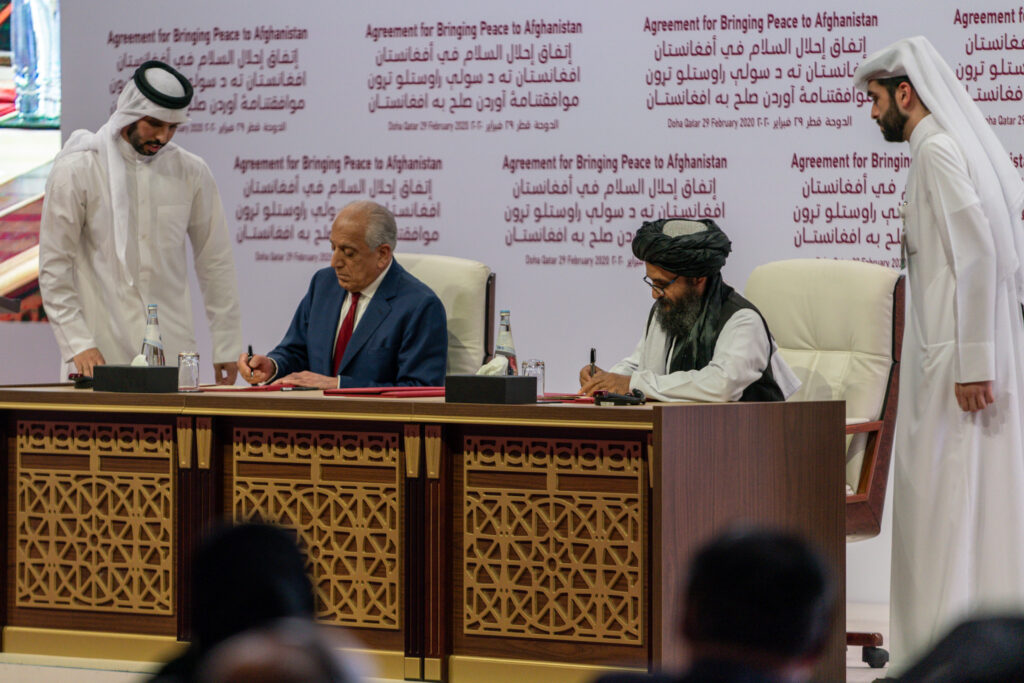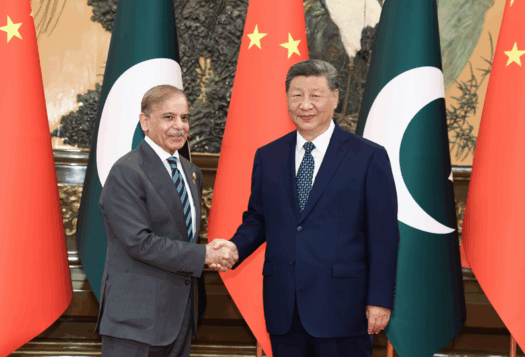
As Donald Trump prepares to return to office in January 2025, uncertainty looms large in Islamabad over the future of ties with the United States. Among fervent supporters of the Pakistan Tehreek-e-Insaf (PTI), Trump’s win led to renewed hope that a second Trump administration could pressure the incumbent Pakistani government to release the incarcerated former Prime Minister and founder of PTI, Imran Khan, whom Trump has called his “great friend.” However, among others, the past inconsistencies between Trump’s stated intentions and actions have fueled uncertainty about the U.S.-Pakistan relationship. For instance, in his 2016 electoral campaign, Trump had promised to secure the release of imprisoned Dr. Shakeel Afridi, an alleged undercover CIA operative who aided the assassination of Osama Bin Laden. However, once in power, he never persuaded Islamabad to fulfill that promise.
The official quarters in Islamabad seem to be overcome with the somber reality of Pakistan’s significantly diminished relevance in Washington’s calculations in South Asia, particularly after U.S. disentanglement in Afghanistan, its great power competition with China, and its increasingly robust strategic partnership with India. On top of that, Trump’s description of global warming as a “scam”, his slashing of economic and military aid to Pakistan during his previous term, and his view that Pakistan is a “safe haven” for terrorists further diminish Islamabad’s hopes for a robust and warm bilateral relationship with Washington. Islamabad’s waning relevance in U.S. foreign policy — especially as Washington is distracted by wars in the Middle East and Europe and has prioritized India to counterbalance China in the Indo-Pacific — does not suggest a positive trajectory for the U.S.-Pakistan relationship under Trump.
Relevance of Pakistan for Trump: Then and Now
Shortly after Trump assumed office in his first administration, he cut USD $1.3 billion in security assistance to Pakistan. This reduction had a detrimental impact on the singularly focused, security-centric relationship between the two countries. In the intervening years, Islamabad’s strategic position has further worsened. U.S. security calculations and priorities have drastically shifted to other conflict zones, such as the Middle East, Ukraine, and Taiwan, and deprioritized Pakistan. Consequently, in his new term, Trump may be more assertive with Pakistan and further limit military assistance to Islamabad. Specifically, Trump may further slash counterterrorism aid for the Afghanistan-Pakistan region.
The official quarters in Islamabad seem to be overcome with the somber reality of Pakistan’s significantly diminished relevance in Washington’s calculations in South Asia, particularly after U.S. disentanglement in Afghanistan, its great power competition with China, and its increasingly robust strategic partnership with India.
This mismatch in priorities may unsettle policymakers in Islamabad. Afghanistan remains an issue of prime concern for Pakistan due to the humanitarian crisis in that country, the presence of global terrorist outfits, drugs, small arms trafficking, and the migration of large numbers of Afghan refugees into Pakistan. The Taliban regime in Afghanistan is sustained by foreign humanitarian assistance, and the United States remains the country’s largest donor. Since the Taliban’s seizure of power in August 2021, the United States has disbursed over USD $3.2 billion in humanitarian and development aid. Since Trump may take a hardline stance on the Taliban, Pakistan has to brace for a potential U.S. ban on humanitarian assistance to Afghanistan. Such a ban would mean that Islamabad would have to tackle these multifold crises by itself.

The U.S-China-Pakistan Triangle Under Trump
Trump’s incoming cabinet will test the U.S.-Pakistan relationship as it is likely to contain many officials who seek to hinder China’s rise and who have characterized Beijing’s Belt and Road Initiative as a threat. This attitude is best epitomized by Trump’s selection of Marco Rubio as secretary of state and Mike Waltz as national security advisor. Rubio is currently under sanctions by Beijing, potentially complicating U.S.-China bilateral engagement. These are treacherous waters for Pakistan to navigate. Key Pakistani policymakers view the China-Pakistan Economic Corridor (CPEC) as an economic lifeline, and U.S. assistance is crucial to Islamabad in combating violent extremism at home.
Trump’s hawkishness toward China may also impact Pakistan’s economic sustainability in other ways. For the past few decades, Pakistan has been struggling with unsustainable debt, and during its first term, the Trump administration challenged the use of the International Monetary Fund (IMF) for relief, since much of Pakistan’s debt went toward financing CPEC projects. This September the IMF approved a USD $7 billion bailout package for Pakistan which is gradually rolling out in phases. If the incoming Trump administration adopts a similarly hostile stance on the IMF’s economic policies toward Pakistan, Islamabad may continue to struggle to manage its debt. The potential presence of officials with a relatively hawkish stance toward China — including Marco Rubio, John Ratcliffe, and Mike Waltz — therefore presents a significant risk that Pakistan’s CPEC interests may be negatively impacted, as Islamabad attempts to balance its dependence on both the IMF and Beijing.
On the whole, while Islamabad worked hard to reset ties with Washington under outgoing President Biden, Trump’s reelection will once more place Pakistan in a precarious strategic position.
A hawkish approach to China may also result in a closer relationship between India and the United States, which will directly impact Pakistan. Earlier this year, Rubio introduced a measure in the U.S. Congress that aimed to strengthen relations with India and scrutinize Pakistan’s relationship with terrorist groups targeting India. If the incoming Trump administration maintains this stance, it will further pressure Pakistan to prove that it is taking adequate steps to eliminate terrorism. While Pakistan did demonstrate sufficient progress in countering terror financing to exit the Financial Action Task Force’s list of countries requiring increased monitoring in 2022, Indian officials allege that Pakistan continues to support militant activity in Indian-administered Kashmir. Pakistani officials deny these claims.
On the whole, while Islamabad worked hard to reset ties with Washington under outgoing President Biden, Trump’s reelection will once more place Pakistan in a precarious strategic position. Pakistan would have to compete with U.S. priorities in the Middle East and Ukraine and balance its relations with China and the United States. In particular, Pakistan will need to find a way to convince the United States to cooperate with it on counterterrorism. Counterterrorism aid is especially crucial to Islamabad, given that it has failed in recent years to provide security to CPEC projects and Chinese personnel working on them – potentially leading Beijing to try to fill the vacuum of U.S. counterterrorism support with Chinese troops. But even as it tries to build trust with Trump, Islamabad cannot afford to lose China, given Pakistan’s immense economic dependence on Beijing. In such a situation, Pakistan will need to walk a tight rope between the United States and China so that its security and economic needs continue to be fulfilled at the same time.
Also Read: 2024 U.S. Elections and Afghanistan’s Uncertain Future
***
Image 1: Trump White House via Flickr
Image 2: U.S. Department of State via Wikimedia Commons


